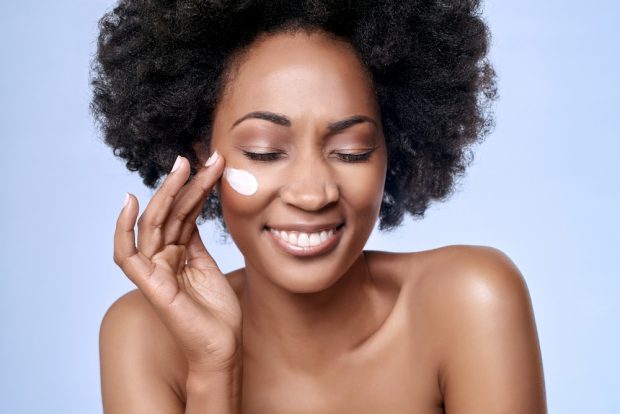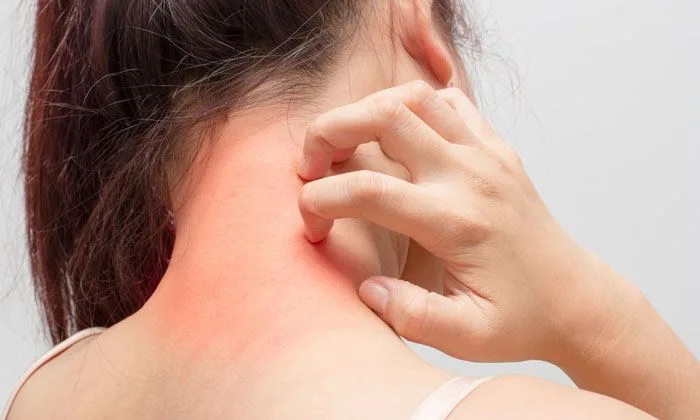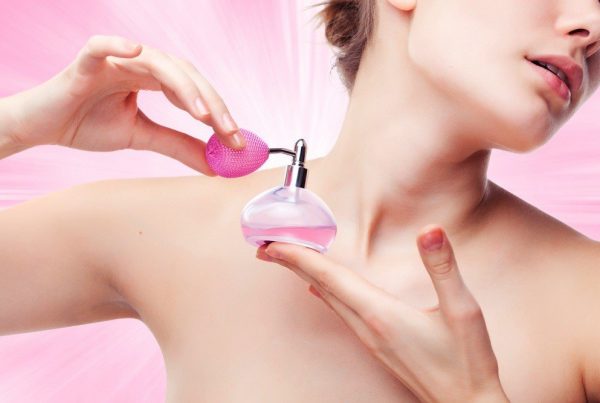Certain foods, such as nuts and dairy, can trigger symptoms of eczema. Environmental triggers can include smoke, pollen, soaps, and fragrances. Eczema is not contagious.
Longevity hosts Dr. Dwayne Koot on #WellnessWednesday
Some people outgrow the condition, while others will continue to have it throughout adulthood. Every week, Longevity speaks live to a specialist on Instagram. In this post, we summarize the key highlights from, Gisele Wertheim Aymes’ discussion with Dr. Dwayne Koot. Dr. Koot is an expert on atopic eczema, a pharmacologist, and Sanofi’s Medical Advisor, Immunology. He explained what eczema is, the symptoms, early stages of detection and treatment.
“There are three contributing factors to determine the condition. The first diagnostic criteria is having a rash. Next is family history, which is atopical eczema or other atopic diseases such as asthma. It’s a huge genetic component. Eczema runs in families. Then there’s the environment component and that plays into what can trigger a flare up. It isn’t always present. It flares up and goes away sometimes only to return, if you’re exposed to another environmental factor”. says Dr. Koot
General Eczema Symptoms
In most cases, eczema symptoms are mild. The most common symptoms of atopic dermatitis include
- dry, scaly skin
- skin flushing
- itching
- open, crusted, or weeping sores
People with severe eczema may need more intensive treatment to relieve their symptoms. Continuous rubbing and scratching can also lead to skin infections.
Serious psychosocial impact
Explains Dr. Koot, “It’s a visible condition. It can very easily affect a person’s self-esteem and can have a serious psycho-social impact on a person’s life. They might want to withdraw from society for fear of what onlookers might think when they think of them. There’s also a stigma attached to eczema. When you see a person with a visible skin rash, you might think it’s contagious.”
Infant eczema symptoms
Atopic eczema is considered a childhood disease, as 90% of the cases will be present before the age of 5. However, many of these children will outgrow it during adolescence.
“Eczema can return in adulthood, in fact adults can get it at any stage of their life.”
The following atopic dermatitis symptoms are common in babies
- rashes
- on the scalp and cheeks
- that bubble up before leaking fluid
- that can cause extreme itchiness, which may interfere with sleeping
- that appear behind the creases of elbows or knees
- that appear on the neck, wrists, ankles, and the crease between the buttocks and legs
- rashes that are bumpy
- that can become lighter or darker
Most people with the condition develop it before the age of 5 years old.
“With children, it’s easy to make a diagnosis, because where the rash appears is extremely characteristic. On children, it will generally appear on their cheeks. So when a GP sees this, he’s going to say, that’s atopic eczema. Then, as the child ages, the characteristic location changes. It’s mostly found on the inside of your elbows, on your hands, and wrists. In an adult, it’s generally not that easy to diagnose.”
Symptoms in adults
The following atopic dermatitis symptoms are common in adults
- rashes that are more scaly than those occurring in children

Dr. Dwayne Koot
- rashes that commonly appear in the creases of the elbows or knees or the nape of the neck
- rashes that cover much of the body
- very dry skin in the affected areas
- rashes that are permanently itchy
- skin infections
Adults who developed atopic dermatitis as children but no longer experience the condition may still have dry or easily irritated skin, hand eczema, and eczema on the eyelids.
“The appearance of skin affected by atopic dermatitis will depend on how much a person scratches and whether the skin is infected. Scratching and rubbing can further irritate the skin, increase inflammation, and make the itching worse,” says Dr Koot.
Treating dermatitis
There’s currently no cure for eczema. Treatment for the condition aims to heal the affected skin and prevent flares of symptoms. Doctors will suggest a treatment plan based on an individual’s age, symptoms, and current state of health.
In some people, eczema goes away over time. For others, however, it’s a lifelong condition.
“Caregivers and patients must learn to know how to identify and treat these triggers. Use gentle skincare regimes and get into the habit of not using soaps or harsh detergents. It’s a given to avoid certain types of clothes and to generally become aware of these triggers. Then it’s extremely important to frequently and liberally use moisturizers.” says Dr. Koot

Daxiao Productions/Shutterstock
Taking care of your skin
There are several things that people with eczema can do to support skin health and alleviate symptoms.
- moisturize every day
- wear cotton and soft fabrics
- by avoiding rough, scratchy fibers and tight-fitting clothing
- using mild soap or a non-soap cleanser when washing
- air drying or gently patting the skin dry with a towel, rather than rubbing the skin dry after bathing or taking a shower
- where possible, avoid rapid changes in temperature and activities that cause sweating
- learn about and avoid individual eczema triggers.
- Keep fingernails short to prevent scratching from breaking the skin
Watch the interview
View this post on Instagram
References
-
World Eczema Day: Longevity Live https://longevitylive.com/
beauty/world-atopic-eczema- day-more-than-skindeep/. -
Healthline: www.healthline.com/eczema
-
Excema.org www.eczema.org.
-
The Allergy Foundation. www.allergyfoundation.co.za.
Main photo credit: Sanofi International Dupixent press advisory




![women [longevity live]](https://longevitylive.com/wp-content/uploads/2020/01/photo-of-women-walking-down-the-street-1116984-100x100.jpg)










